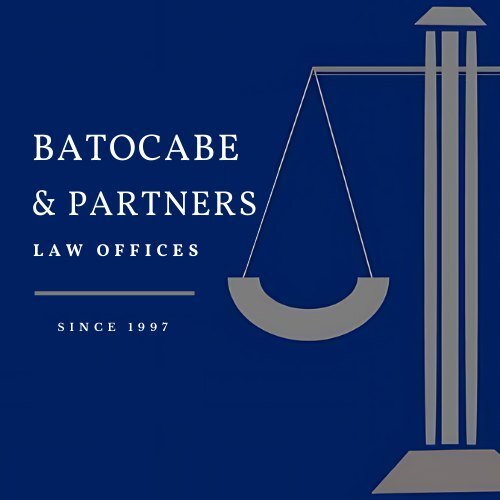Best Landlord & Tenant Lawyers in Pasig
Share your needs with us, get contacted by law firms.
Free. Takes 2 min.
Free Guide to Hiring a Real Estate Lawyer
List of the best lawyers in Pasig, Philippines
Philippines Landlord & Tenant Legal Questions answered by Lawyers
Browse our 1 legal question about Landlord & Tenant in Philippines and read the lawyer answers, or ask your own questions for free.
- Can a lessor terminate our contract of lease because he changed his mind?
- We have a contract of lease until 2035. Now, the lessor wants to terminate the contract because he has changed his mind. The reason why we have agreed on this contract is that the lessor owed money to us, the lessee. Since he cannot pay, we agreed that in exchange,... Read more →
-
Lawyer answer by KSN Bangkok Co., Ltd.
Under Thai law, a lease agreement is generally binding until its agreed expiration date, unless terminated by mutual consent or due to a breach of contract. If the lease specifies a fixed term (e.g., until 2035) and there is no...
Read full answer
About Landlord & Tenant Law in Pasig, Philippines
Landlord and tenant laws in the Philippines, including Pasig, are governed by a mix of national legislation and local ordinances. Primarily, the Civil Code of the Philippines and the Rent Control Act (Republic Act No. 9653) play crucial roles in defining the rights and responsibilities of landlords and tenants. These laws ensure that both parties engage in fair dealings concerning rental agreements, property maintenance, and conflict resolution. Pasig, being a thriving city, experiences a variety of housing situations ranging from residential to commercial leases, each with specific legal nuances.
Why You May Need a Lawyer
Navigating landlord and tenant issues can be complex, and seeking legal advice might be essential in the following situations:
- Negotiating lease terms and ensuring they comply with existing laws.
- Resolving disputes over unpaid rent, property damage, or lease violations.
- Understanding eviction procedures and defending against wrongful eviction.
- Seeking recompense for neglected property maintenance or repair obligations.
- Handling implications of subleasing or lease assignment.
- Addressing legal notifications or court summons related to rental agreements.
Local Laws Overview
Several critical aspects of local laws in Pasig, with relevance to landlord and tenant interactions, include:
- Rent Control: The Rent Control Act places limits on rent increases and provides guidelines on deposit requirements and eviction processes for residential units in specified locations.
- Lease Agreement: While verbal lease agreements are recognized, having a written contract is advisable for clarity and enforcement.
- Security Deposit: Landlords often require a security deposit, typically equivalent to one or two months’ rent, which cannot be used as rent and should be returned at the lease's end unless there are damages.
- Eviction Process: Legal eviction requires valid grounds such as non-payment or violation of lease terms, and landlords must follow due process through formal notice and possible court procedures.
- Repair and Maintenance: Landlords have a duty to maintain habitable living conditions and address necessary repairs within reasonable timeframes.
Frequently Asked Questions
What is the maximum allowable rent increase annually?
Under the Rent Control Act, the allowable yearly rent increase for covered properties is capped at 7% if the unit is occupied by the same tenant.
Can a landlord increase rent without a new lease agreement?
No, any modifications in terms such as rent should be mutually agreed upon and ideally documented in a new lease or an addendum.
What should I do if my landlord refuses to return my security deposit?
You should first seek a discussion with your landlord. If unresolved, you may need legal assistance to file a complaint to recover the deposit.
How much notice must be given before eviction?
Landlords must provide at least a 30-day written notice for evictions based on valid legal reasons unless specified differently in the lease agreement.
Is it legal for a landlord to evict me without a court order?
No, any eviction must be backed by a court order following due process; otherwise, it is considered unlawful.
Can I sublease my rental unit in Pasig?
Subleasing is generally allowed if the original lease agreement permits it. Tenants should obtain written consent from the landlord to avoid potential legal issues.
What are my rights if my rental unit requires urgent repairs?
Tenants can request necessary repairs from the landlord. If not addressed, they may facilitate repairs and deduct reasonable costs from rent, but this should be documented and communicated properly.
Are there any circumstances where a landlord can terminate a lease early?
Typically, leases can only be prematurely terminated with mutual consent or if there is a substantial breach of contract by the tenant.
What happens if my lease is not in writing?
Verbal agreements are still binding but challenging to enforce legally; therefore, written contracts are recommended for clarity and protection.
Who is responsible for paying property taxes, the landlord or tenant?
Property taxes are generally the responsibility of the landlord unless specified otherwise by a contractual agreement within the lease terms.
Additional Resources
For individuals seeking further assistance or detailed information, the following local resources may be helpful:
- Pasig City Hall and its available legal consultative services.
- Housing and Land Use Regulatory Board (HLURB) for guidelines and regulations.
- The Department of Human Settlements and Urban Development (DHSUD) for housing policies.
- Philippine Bar Association for connecting with qualified lawyers.
Next Steps
If you require legal assistance regarding landlord and tenant issues, consider the following steps:
- Document all relevant communications and agreements with involved parties.
- Seek initial advice from local government offices or housing authorities.
- Consult with a lawyer specializing in real estate or property law for detailed legal counsel.
- Identify whether alternative dispute resolution is feasible before proceeding to formal legal channels.
- Ensure all legal procedures comply with associated timelines and formalities to protect your interests.
Lawzana helps you find the best lawyers and law firms in Pasig through a curated and pre-screened list of qualified legal professionals. Our platform offers rankings and detailed profiles of attorneys and law firms, allowing you to compare based on practice areas, including Landlord & Tenant, experience, and client feedback.
Each profile includes a description of the firm's areas of practice, client reviews, team members and partners, year of establishment, spoken languages, office locations, contact information, social media presence, and any published articles or resources. Most firms on our platform speak English and are experienced in both local and international legal matters.
Get a quote from top-rated law firms in Pasig, Philippines — quickly, securely, and without unnecessary hassle.
Disclaimer:
The information provided on this page is for general informational purposes only and does not constitute legal advice. While we strive to ensure the accuracy and relevance of the content, legal information may change over time, and interpretations of the law can vary. You should always consult with a qualified legal professional for advice specific to your situation.
We disclaim all liability for actions taken or not taken based on the content of this page. If you believe any information is incorrect or outdated, please contact us, and we will review and update it where appropriate.











